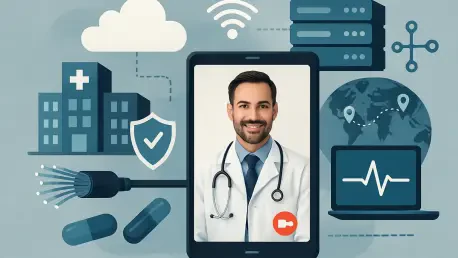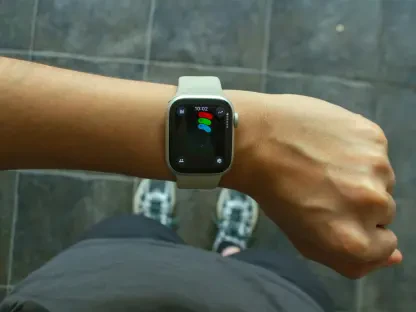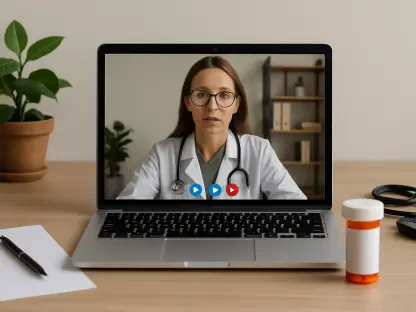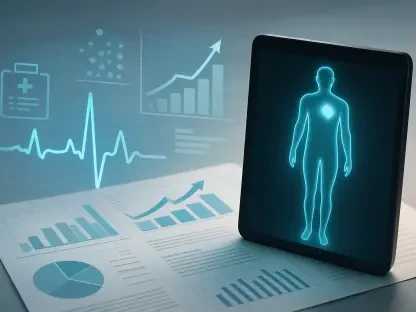In a state where vast rural landscapes often isolate communities from critical health care services, Oregon Health & Science University (OHSU) has embarked on a transformative journey to bridge this gap for some of the most vulnerable populations. With significant federal funding and a vision for innovative care, this initiative is redefining how health services reach those who need them most, particularly individuals grappling with homelessness, substance use disorders, and limited access to traditional medical facilities. By harnessing the power of telemedicine and the empathy of peer support, the program targets pressing health concerns like hepatitis C, HIV, and mental health challenges across Oregon. This expansion not only addresses immediate medical needs but also aims to empower participants with the tools and confidence to navigate broader life improvements, setting a precedent for community-based health care models.
Revolutionizing Access Through Technology and Empathy
Bridging the Distance with Telemedicine Solutions
One of the cornerstones of this ambitious project is the seamless integration of telemedicine to connect health care providers with individuals in remote and underserved areas of Oregon. Spanning 20 of the state’s 36 counties, the initiative ensures that even those in the most isolated regions can access same-day testing and treatment for conditions like hepatitis C in six targeted counties. By utilizing mobile devices such as tablets and smartphones, participants can engage directly with medical professionals without the burden of travel or long wait times. This approach is particularly vital for rural residents who often face significant barriers to in-person care, including transportation challenges and a scarcity of local clinics. The program’s design prioritizes immediacy and accessibility, ensuring that critical interventions are not delayed by logistical hurdles. Moreover, the use of technology allows for real-time consultations, fostering a sense of connection and support that transcends geographical boundaries and brings health care directly to those who might otherwise go without.
The Human Touch of Peer Support Networks
Complementing the technological advancements is the profound impact of peer support, a key element that sets this initiative apart from traditional health care models. Peer counselors, many of whom have navigated similar struggles with substance use or homelessness, play a pivotal role in building trust and encouraging engagement among participants. Their lived experiences create a unique bond, making it easier for individuals to open up about their challenges and seek help. These counselors facilitate connections to health care services, guiding participants through the process of accessing treatment for HIV, opioid use disorder, and mental health concerns. With a goal to support 100 individuals annually with mental health care and provide same-day medications for opioid use disorder to 50 participants each year, the program underscores the value of empathy in healing. This human-centered approach not only addresses physical ailments but also nurtures emotional resilience, proving that personal connection can be as powerful as any medical intervention.
Building Healthier Communities for the Future
Targeting Critical Health Challenges Statewide
The scope of this expanded effort by OHSU is both broad and targeted, focusing on some of the most pressing health issues affecting vulnerable populations across Oregon. Beyond hepatitis C, the initiative places a strong emphasis on HIV prevention and treatment statewide, recognizing the urgent need to curb the spread of communicable diseases in at-risk communities. Additionally, mental health support is a priority, with tailored services designed to reach those who might otherwise fall through the cracks of conventional systems. The program’s success is evidenced by prior studies showing participants were seven times more likely to receive hepatitis C treatment and four times more likely to achieve viral clearance through telemedicine and peer support compared to traditional referrals. This data highlights the effectiveness of combining technology with personalized care to tackle complex health challenges. By addressing these issues head-on, the project not only improves individual outcomes but also reduces the broader public health burden in Oregon.
Empowering Lives Through Sustainable Change
Looking beyond immediate medical treatment, the initiative championed by OHSU seeks to create a lasting impact by empowering participants to take control of their health and lives. Project leaders have noted that treating conditions like hepatitis C often serves as a gateway for individuals to gain confidence in navigating health care systems, leading to sustained positive changes. This ripple effect is a testament to the program’s holistic vision, which views health care as a stepping stone to broader personal and community development. The collaborative model, involving partnerships between academic institutions, state entities, and local communities, reimagines how care is delivered and sets a blueprint for future endeavors. As the project scaled up to cover more counties over the past months, it demonstrated a commitment to long-term solutions over temporary fixes. Reflecting on these efforts, it’s clear that the blend of innovation and compassion paved the way for stronger, healthier communities, offering a model that could inspire similar initiatives nationwide.









